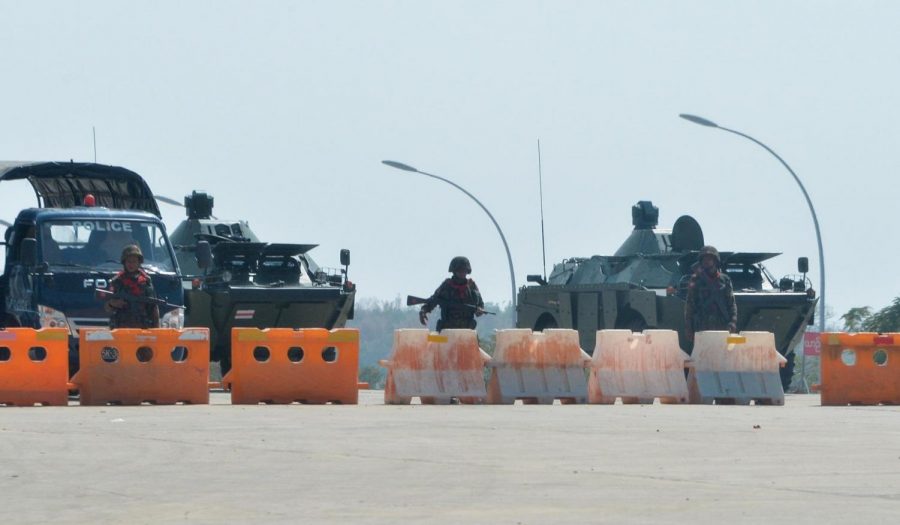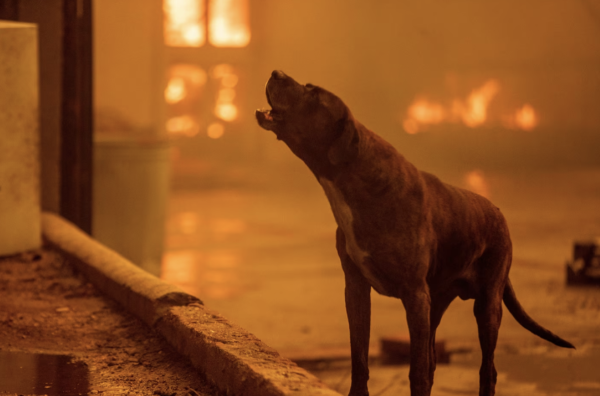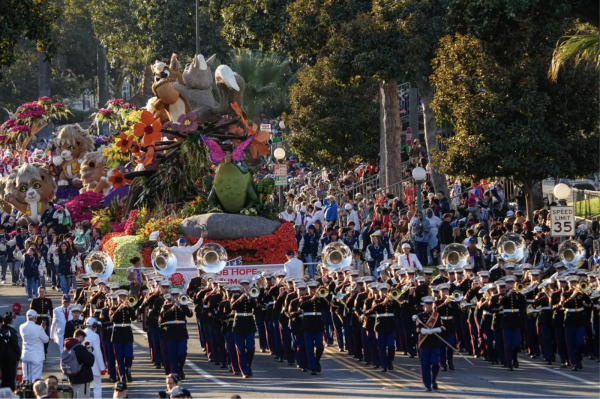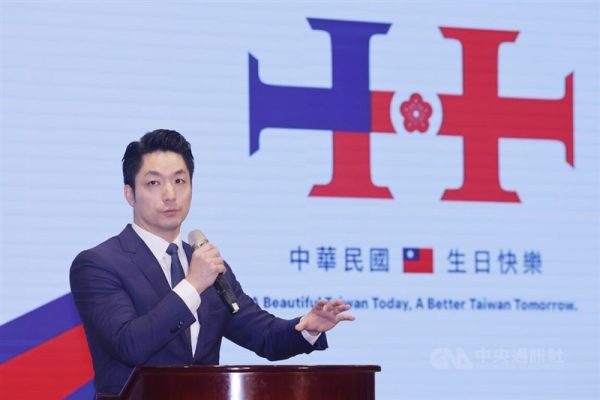Myanmar Coup: An Unwavering Fight for Democracy
Photo courtesy STRINGER/AFP via Getty Images
Soldiers guard a blocked road near Myanmar’s parliment in Naypyidaw on February 1
On February 1st, the Myanmar military, also known as the Tatmadaw, seized control over the country, placing the democratically-elected leader Aung San Suu Kyi and various other civilian officials under house arrest. Led by military commander-in-chief Min Aung Hlaing, the Tatmadaw proclaimed the general election in which Suu Kyi and her NLD party won by a landslide to be fraud and declared a year-long state of emergency. There is no evidence to support the Tatmadaw’s claims of fraud.
Once the news hit, countless citizens of Myanmar, previously known as Burma, took to the streets to protest against the coup, resulting in one of the largest civilian protests in decades. Teachers, medical workers, lawyers, students, government workers, and more continue to crowd the avenues of Myanmar and demand that their voices be heard.
So, why are the citizens of Myanmar so upset about the Tatmadaw coup and why is Aung San Suu Kyi such an important figure? Destructive military intervention in the Asian country is far from an unfamiliar sight. The Tatmadaw was responsible for leading a campaign of genocide against the Rohingya, a Muslim minority, in 2017 in which thousands were killed and over 800,000 Rohingya were forced into Bangladesh. Citizens of Myanmar had been suffering under military rule for nearly 50 years from 1962 until 2011, with the country cut off from the world and detrimental international sanctions in response to actions taken by the ruling military.
In the late 20th century to the early 21st century numerous protests led by the Myanmar citizens and violent military reinforcements arose as Suu Kyi rose to power fighting for democracy, the people recognizing her as the face of the opposition. She endured a lengthy 15 years under house arrest between the years of 1989 and 2010 as a result of her pro-democratic work and was awarded the Nobel Peace Prize in 1991. Years later in 2015, both her and her NLD party emerged victorious in Myanmar’s first openly conducted election in 25 years. Over the past decade Suu Kyi enacted various reforms within the country, such as attempts to free elections and an increase in foreign investments. Prior to the coup, the people of Myanmar were enjoying a greater sense of freedom, with the NLD party garnering over 80% of the votes in the recent February election. This victory cemented Suu Kyi’s status as the most respected leader in the country. Needless to say, when news of the return to military rule broke out, the citizens were furious.
The Tatmadaw is currently enforcing harsh regulations such as shutting down the internet, denying the citizens access to speak out against their government, and even using live ammunition to dispel the protesters. As of March 14th, over 110 people have been murdered by the military and police, a fifth of whom died from gunshot wounds to the head. More than a fifth of the civilians killed were teenagers. A Myanmar citizen discusses her sense of helplessness, stating, “We have no way to run away from the military, and everything is in their hands. It feels like we are little poor mice stuck in a trap.”
While many countries have expressed their contempt towards the military takeover, China and Russia have both blocked a UN resolution condemning the coup. The neighboring countries of Thailand, Cambodia, and the Philippines have declared the coup an “internal matter.” The United States and the United Kingdom, however, have enacted sanctions on Tatmadaw officials. On Friday, March 12th, the Biden Administration announced that they will be offering protected status to people from Myanmar who currently reside in the US, allowing them to remain living and working in the country for the next 18 months.
The Myanmar humanitarian crisis is in need of immediate attention. A Myanmar citizen calls out, “By the standard of democracy that the international communities accept and believe, basic human rights and the basis of democracy should not be discarded. Our rights need to be protected, and to do so, we need the help from international communities. I ask of you not to lose interest in our country and closely monitor us to learn of any development. For us civilians, we will never give up. We will do all we can and risk anything we have to build a better future and country.”
Sources:
Myanmar Coup: What is happening in Myanmar
The People of Myanmar Speak on the Military Coup U.S. Offers Protected Status for People From Myanmar as Coup Leaders Crack Down
Days of Killings and Defiance in Myanmar, With Neither Side Relenting

Grade: 12
Years on Staff: 4
Why are you writing for the Flintridge Press?
I'm on the Press because it gives me an outlet to express my opinions,...










